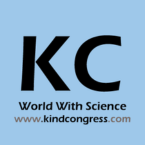1. Clinical Advances
This track delves into the forefront of clinical practices in neonatology, showcasing the latest therapeutic interventions and evidence-based care models that enhance patient outcomes. Attendees will gain insights into innovative treatments and standardized care protocols that are being adopted globally. The discussion will include quality improvement initiatives aimed at reducing variability in care and ensuring that all neonates receive the best possible treatment. Participants will have the opportunity to engage with experts who are leading these advancements and share their experiences in implementing new practices in their NICUs.
-
Emerging Therapies: Discuss ground breaking treatments and interventions that are changing the landscape of neonatal care.
-
Standardization of Care Protocols: Learn about the development and implementation of standardized protocols to ensure consistent and high-quality care across NICUs.
-
Quality Improvement Initiatives: Explore case studies and strategies for ongoing quality improvement in neonatal units.
2. Resuscitation Techniques
In this vital track, healthcare professionals will explore the latest advancements in neonatal resuscitation. Participants will review current guidelines that dictate best practices for resuscitating newborns in various clinical scenarios, including preterm and critically ill infants. The track will emphasize the importance of simulation training, allowing attendees to practice and refine their skills in a safe environment. Additionally, the session will cover essential post-resuscitation care, highlighting the importance of monitoring and supportive measures to ensure optimal recovery for neonates and their families.
-
Neonatal Resuscitation Guidelines: Review current guidelines and recommendations for resuscitating newborns in various clinical scenarios.
-
Simulation Training for Staff: Understand the importance of simulation-based training in preparing healthcare teams for real-life resuscitation situations.
-
Post-Resuscitation Care: Discuss the critical aspects of care following resuscitation, including monitoring and support for the newborn and family.
3. Infection Management
Infection control is critical in the NICU, and this track focuses on the strategies necessary to prevent and manage infections in vulnerable neonates. Participants will learn about the latest protocols for preventing nosocomial infections, including the implementation of strict hygiene practices and the role of antibiotic stewardship programs. The discussions will also address the management of sepsis in neonates, providing attendees with evidence-based approaches to identify and treat this life-threatening condition promptly. Experts will share their experiences and successful interventions that have led to improved infection control outcomes.
-
Prevention of Nosocomial Infections: Learn about protocols and practices designed to minimize the risk of hospital-acquired infections in neonates.
-
Antibiotic Stewardship: Explore strategies for responsible antibiotic use to combat resistance and ensure effective treatment.
-
Management of Sepsis in Neonates: Review the latest evidence-based practices for identifying and treating sepsis in newborns.
4. NICU Innovations
This track highlights ground breaking innovations and technologies that are transforming care in neonatal intensive care units. Attendees will explore the integration of telehealth services, which have become increasingly important in providing care and support to families, especially in remote areas. The use of wearable technology for continuous monitoring of vital signs and health parameters will also be discussed, showcasing how these tools can enhance patient safety and outcomes. Participants will learn about advanced imaging techniques that aid in the diagnosis and management of neonatal conditions, ensuring that healthcare providers are equipped with the most current information and tools available.
-
Telehealth in NICUs: Examine how telehealth services are being integrated into neonatal care to improve access and support.
-
Wearable Technology for Monitoring: Learn about the use of wearable devices for real-time monitoring of neonatal patients.
-
Advanced Imaging Techniques: Discuss the role of cutting-edge imaging technologies in diagnosing and managing neonatal conditions.
5. Family-Centered Care
Recognizing the critical role of families in neonatal care, this track focuses on strategies to engage and support parents during their NICU experience. Attendees will learn about the importance of involving families in care decisions and how this approach can lead to better health outcomes for both infants and families. The track will cover various support programs designed to assist parents, including counseling services and peer support networks. Furthermore, participants will discuss how to create a healing environment in the NICU that fosters family involvement and enhances the overall well-being of both patients and their families.
-
Involving Families in Care Decisions: Explore strategies to empower families to participate actively in their child's care.
-
Support Programs for Parents: Discuss resources and programs available to support parents during their NICU journey.
-
Creating a Healing Environment: Learn about the physical and emotional aspects of creating a supportive environment for families in the NICU.
6. Nutrition Practices
Proper nutrition is essential for the growth and development of neonates, particularly those born prematurely or with low birth weight. This track will provide insights into best practices for neonatal nutrition, emphasizing the importance of breastfeeding support in the NICU. Attendees will learn about the unique nutritional needs of preterm infants and the strategies for fortifying breast milk and formula to meet these needs. Discussions will also cover the latest research on nutritional interventions that can positively impact long-term health outcomes for neonates. Breastfeeding Support in NICUs: Discuss techniques and programs that promote breastfeeding among NICU infants.
-
Nutritional Needs of Preterm Infants: Review the unique nutritional requirements of preterm and low-birth-weight infants.
-
Fortification Strategies: Explore options for fortifying breast milk and formula to meet the specific needs of neonates.
7. Parent Mental Health
The mental health of parents during their infant's NICU stay is a crucial aspect of overall family well-being. This track will address the psychological challenges that parents face, including anxiety and depression, and the importance of screening for these conditions. Participants will learn about the resources available to support parents, such as support groups and counseling services. Additionally, the track will explore how a NICU stay can impact family dynamics and relationships, providing strategies for healthcare providers to support families in navigating these challenges.
-
Screening for Parental Anxiety and Depression: Learn about tools and methods for assessing mental health in parents of NICU infants.
-
Support Groups and Resources: Discuss the importance of peer support and resources available for parents navigating the NICU experience.
-
Impact of NICU Stay on Family Dynamics: Explore how a NICU stay affects family relationships and dynamics, and strategies for support.
8. Long-Term Outcomes
This track focuses on the importance of follow-up care and monitoring for neonates who have graduated from the NICU. Attendees will discuss best practices for ongoing care and the significance of assessing developmental milestones in former NICU patients. The track will highlight strategies for early intervention services that can support developmental progress and address any challenges that may arise. Experts will share insights on the long-term outcomes of NICU graduates and the factors that contribute to successful transitions to home and community life.
-
Follow-Up Care for NICU Graduates: Review best practices for ongoing care and monitoring of infants who have graduated from the NICU.
-
Assessing Developmental Milestones: Learn about tools and assessments used to evaluate developmental progress in former NICU patients.
-
Strategies for Early Intervention: Discuss the role of early intervention services in supporting developmental outcomes for NICU graduates.
9. Pain Management
Effective pain management in neonates is essential for improving outcomes and enhancing the quality of life for these vulnerable patients. This track will explore the various assessment tools available for evaluating pain in neonates, highlighting the challenges healthcare providers face in this area. Participants will learn about pharmacological and non-pharmacological interventions for managing pain, including innovative approaches and best practices. The importance of educating families about pain management options will also be emphasized, ensuring that parents are informed and engaged in their infant's care.
-
Assessment Tools for Neonatal Pain: Learn about validated tools for assessing pain levels in neonates and the challenges involved.
-
Pharmacological vs. Non-Pharmacological Interventions: Compare different pain management strategies, including medication and alternative therapies.
-
Family Education on Pain Management: Discuss the importance of educating families about pain management options for their infants.
10. Research Methods
This track aims to enhance research literacy among clinicians by examining the methodologies used in neonatal research. Participants will learn about the principles of designing effective studies that address the unique challenges of the neonatal population. Ethical considerations in conducting research with neonates will be a key focus, with discussions on obtaining informed consent and ensuring the welfare of participants. The track will also cover strategies for translating research findings into clinical practice, empowering attendees to implement evidence-based interventions in their NICUs. Designing Neonatal Studies: Learn about the principles of designing effective research studies in the neonatal population.
-
Ethics in Neonatal Research: Discuss the ethical challenges and considerations unique to conducting research with neonates.
-
Translating Research into Practice: Explore strategies for implementing research findings into clinical practice to improve patient care.
11. Global Health
Addressing neonatal health disparities is a global challenge, and this track focuses on the initiatives aimed at improving outcomes for neonates worldwide. Participants will learn about the unique challenges faced by healthcare providers in low-resource settings and the innovative solutions being implemented to overcome these barriers. The track will highlight global health initiatives and collaborations that aim to share best practices and improve neonatal care across different regions. Additionally, discussions on cultural competence will emphasize the importance of understanding and respecting cultural differences in providing effective care.
Discuss challenges and initiatives in neonatal care across different regions, focusing on cultural competence and global health collaborations. This track highlights the disparities and solutions in neonatal health worldwide.
-
Neonatal Care in Low-Resource Settings: Examine the unique challenges faced by neonatal care providers in resource-limited environments.
-
Global Health Initiatives and Collaborations: Learn about international efforts to improve neonatal outcomes and share best practices.
-
Cultural Competence in Neonatal Care: Discuss the importance of understanding cultural differences in providing effective neonatal care.
12. Ethical Issues
The ethical dilemmas faced in neonatal care require thoughtful consideration and discussion. This track will explore the complexities of decision-making in critical care situations, providing frameworks for ethical practice. Participants will discuss end-of-life care considerations, including how to provide compassionate support to families during difficult times. The challenges of obtaining informed consent in neonatal research and clinical settings will also be addressed, ensuring that healthcare providers are equipped to navigate these sensitive issues with care and integrity. Explore complex ethical dilemmas faced in neonatal care, including decision-making and end-of-life considerations. This track aims to foster discussion on ethical practices in the NICU.
-
Decision-Making in Critical Care: Review frameworks for ethical decision-making in high-stakes neonatal situations.
-
End-of-Life Care Considerations: Discuss best practices for providing compassionate end-of-life care for neonates and their families.
-
Informed Consent Challenges: Explore the complexities of obtaining informed consent in neonatal research and clinical care.
13. NICU to Home
Transitioning from the NICU to home is a critical phase for families and infants. This track will focus on effective discharge planning and the criteria necessary for a safe transition. Participants will learn about the resources and support services available to families once they leave the NICU, including home care options. The importance of parental education and training will also be emphasized, equipping families with the knowledge and skills needed to care for their infant at home successfully. Focus on the transition of care from the NICU to home, including discharge planning and parental education. This track emphasizes the importance of preparing families for home care.
-
Discharge Planning and Criteria: Learn about the essential components of effective discharge planning for NICU graduates.
-
Home Care Support Services: Discuss available resources and services to support families once they leave the NICU.
-
Parental Education and Training: Explore educational programs designed to prepare parents for caring for their infant at home.
14. Pharmacology Advances
Advancements in pharmacology are crucial for ensuring the safe and effective treatment of neonates. This track will explore the latest developments in neonatal pharmacology, including new drug formulations and their implications for clinical practice. Participants will discuss the challenges of determining appropriate dosing for neonates and the importance of monitoring drug effects and side effects. The track will highlight best practices for medication management in the NICU, ensuring that healthcare providers are informed about the latest advancements in this field. Examine recent advancements in neonatal pharmacology, including new drug formulations and dosing challenges. This track highlights the importance of safe medication practices in neonates.
-
New Drugs for Neonatal Use: Discuss the latest drug approvals and their implications for neonatal care.
-
Dosing Challenges in Neonates: Explore the complexities of determining appropriate medication dosages for neonates.
-
Monitoring Drug Effects and Side Effects: Learn about strategies for monitoring the safety and efficacy of medications in neonates.
15. Health Disparities
This track addresses the disparities in neonatal health outcomes and the strategies necessary to reduce these gaps. Participants will learn about the social determinants of health that contribute to health disparities in neonatal populations. The discussion will focus on identifying at-risk populations and the interventions that can improve outcomes for underserved communities. Successful community outreach programs that support neonatal health and education will also be highlighted, showcasing innovative approaches to addressing these critical issues. Address the disparities in neonatal health outcomes and discuss strategies to reduce these gaps. This track focuses on understanding and addressing social determinants of health.
-
Identifying At-Risk Populations: Learn about the factors that contribute to health disparities in neonatal populations.
-
Strategies to Reduce Disparities: Discuss interventions and policies aimed at improving outcomes for underserved populations.
-
Community Outreach Programs: Explore successful community initiatives that support neonatal health and education.
16. Palliative Care
Palliative care is an essential component of neonatal care, focusing on providing comfort and support to critically ill infants and their families. This track will discuss the principles of neonatal palliative care, emphasizing the importance of a holistic approach to treatment. Participants will learn about effective communication strategies for discussing palliative care options with families and how to integrate these principles into routine NICU practices. The track will provide insights into creating a compassionate environment that prioritizes the well-being of both patients and families. Discuss the principles and practices of palliative care in neonatology, focusing on providing comfort and support to critically ill infants and their families. This track emphasizes compassionate care.
-
Principles of Neonatal Palliative Care: Learn about the core principles guiding palliative care for neonates and their families.
-
Communication with Families: Explore effective communication strategies for discussing palliative care options with families.
-
Integrating Palliative Care into NICU Practices: Discuss how to incorporate palliative care principles into routine NICU practices.
17. Genetics Screening
Genetic screening plays a vital role in neonatal care, enabling early detection and intervention for various conditions. This track will explore the latest advancements in new born screening programs and their impact on improving health outcomes. Participants will learn about the role of genetic counsellors in supporting families through the screening process and the ethical considerations surrounding genetic testing in neonates. The discussions will emphasize the importance of informed consent and the need for clear communication with families regarding the implications of genetic screening. Examine the role of genetic screening in neonatal care, including the latest advancements and ethical considerations. This track focuses on the importance of early detection and intervention.
-
Newborn Screening Programs: Review the latest developments in newborn screening and their impact on early diagnosis.
-
Genetic Counselling for Families: Discuss the role of genetic counsellors in supporting families through the screening process.
-
Ethical Considerations in Genetic Testing: Explore the ethical implications of genetic testing in neonates and the importance of informed consent.
18. Interdisciplinary Care
Collaboration among healthcare professionals is essential for providing comprehensive care to neonates. This track will highlight the importance of interdisciplinary approaches in the NICU, showcasing effective strategies for fostering teamwork among various disciplines. Participants will discuss the roles of different healthcare professionals in the care of neonates and how their collaboration can enhance patient outcomes. Communication strategies for ensuring effective teamwork will also be explored, providing attendees with practical tools for improving collaboration in their own practices. Highlight the importance of collaboration among healthcare professionals in neonatal care. This track emphasizes team-based approaches to improve patient outcomes.
-
Team-Based Approaches in NICUs: Learn about effective strategies for fostering teamwork in the NICU setting.
-
Role of Different Healthcare Professionals: Discuss the contributions of various disciplines in providing comprehensive care to neonates.
-
Communication Strategies Among Teams: Explore best practices for effective communication within interdisciplinary teams.
19. Telemedicine
Telemedicine is revolutionizing the way neonatal care is delivered, and this track will explore its growing role in enhancing access and support for families. Participants will learn about the benefits of remote consultations for NICU patients, including improved access to specialists and continuity of care. The challenges associated with implementing telehealth in neonatal settings will also be discussed, along with potential solutions. Additionally, the track will emphasize the training and resources needed for healthcare providers to effectively utilize telemedicine in their practice. Explore the growing role of telemedicine in neonatal care, including its benefits and challenges. This track focuses on innovative solutions to enhance access and support for families.
-
Remote Consultations for NICU Patients: Discuss the use of telemedicine for consultations and follow-up care for NICU patients.
-
Benefits and Challenges of Telehealth: Examine the advantages and potential barriers to implementing telehealth in neonatal care.
-
Training for Healthcare Providers: Learn about the necessary training and resources for healthcare providers to effectively utilize telemedicine.
20. Future Research
Identifying key research gaps and future directions in neonatal care is essential for advancing the field. This track aims to stimulate discussions on priorities for neonatal research and collaboration among stakeholders. Participants will learn about the areas where further research is needed to improve neonatal outcomes and the funding opportunities available to support these initiatives. Successful collaborative research projects will be highlighted, showcasing how teamwork can lead to significant advancements in the field of neonatology. Identify key research gaps and future directions in neonatal care. This track aims to stimulate discussion on priorities for neonatal research and collaboration.
-
Identifying Research Gaps in Neonatology: Discuss areas where further research is needed to improve neonatal outcomes.
-
Funding Opportunities for Neonatal Research: Explore potential funding sources and strategies for securing research grants.
-
Collaborative Research Initiatives: Learn about successful collaborative research projects that have advanced the field of neonatology.










